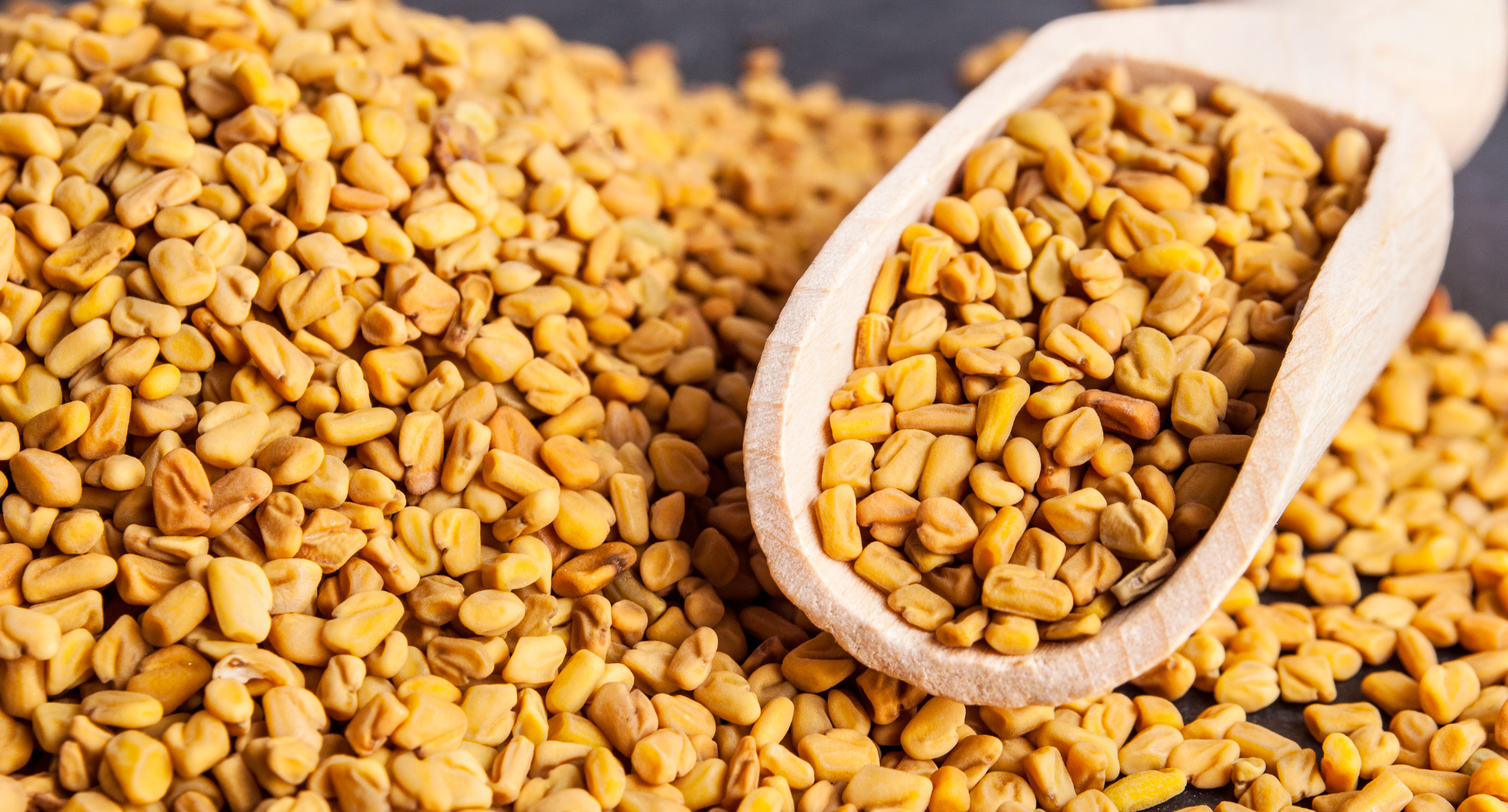
Fenugreek
Scientific Name: Trigonella foenum-graecum
Herbal Profile: Fenugreek (Trigonella foenum-graecum)
Botanical Description:
- Family: Fabaceae (Leguminosae)
- Common Names: Fenugreek, Methi, Greek Hayseed, Bird’s Foot
- Part Used: Seeds, Leaves
Physical Characteristics:
- Appearance: Fenugreek seeds are small, hard, and yellowish-brown. The leaves are small, green, and oval-shaped.
- Taste: Bitter with a slightly sweet, nutty flavor.
- Odor: Strong, characteristic maple-like smell.
Chemical Constituents:
- Alkaloids: Trigonelline
- Saponins: Diosgenin, Yamogenin
- Flavonoids: Vitexin, Isovitexin
- Polysaccharides: Galactomannan
- Vitamins: Vitamin A, B6, C, Thiamine, Folic Acid
- Minerals: Iron, Magnesium, Phosphorus, Potassium, Calcium
Medicinal Uses:
- Digestive Health: Fenugreek seeds are used to relieve indigestion, stomach disorders, and inflammation of the stomach (gastritis).
- Diabetes Management: Known for its hypoglycemic effects, fenugreek helps in lowering blood sugar levels.
- Lactation: Promotes milk production in breastfeeding mothers (galactagogue).
- Anti-Inflammatory: Used to reduce inflammation and for conditions such as arthritis.
- Cardiovascular Health: Helps in lowering cholesterol and improving heart health.
- Skin Health: Applied topically for skin conditions like eczema, wounds, and inflammation.
Preparation and Dosage:
- Seed Powder: 1-2 grams daily.
- Tea: 1 teaspoon of fenugreek seeds steeped in hot water for 10-15 minutes, taken 1-2 times daily.
- Capsules/Tablets: As directed by a healthcare provider, usually 500-1000 mg, 2-3 times daily.
- Topical Paste: Seeds soaked and ground into a paste, applied to the affected area.
Safety and Precautions:
- Pregnancy: Generally safe in culinary amounts, but high doses should be avoided as it may induce labor.
- Allergies: Some individuals may experience allergic reactions.
- Drug Interactions: May interact with anticoagulants, antidiabetic drugs, and hormone therapy.
Culinary Uses:
- Spice: Widely used in Indian, Middle Eastern, and Mediterranean cuisines.
- Sprouts: Fenugreek seeds can be sprouted and added to salads and sandwiches.
- Leaves: Fresh leaves are used as a vegetable in dishes like curries and stir-fries.
Historical and Cultural Context:
- Traditional Medicine: Used in Ayurvedic, Unani, and Traditional Chinese Medicine for various ailments.
- Ancient Usage: Historically used by the Egyptians for embalming and by the Greeks and Romans for culinary and medicinal purposes.
Summary:
Fenugreek is a versatile herb with significant medicinal, culinary, and nutritional benefits. It has been traditionally used for digestive health, diabetes management, lactation support, and more. While generally safe, it should be used with caution, especially in high doses or in combination with certain medications.
